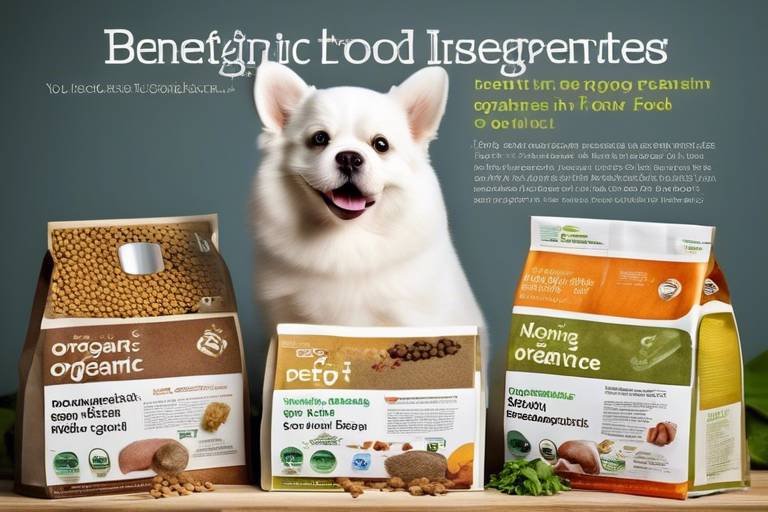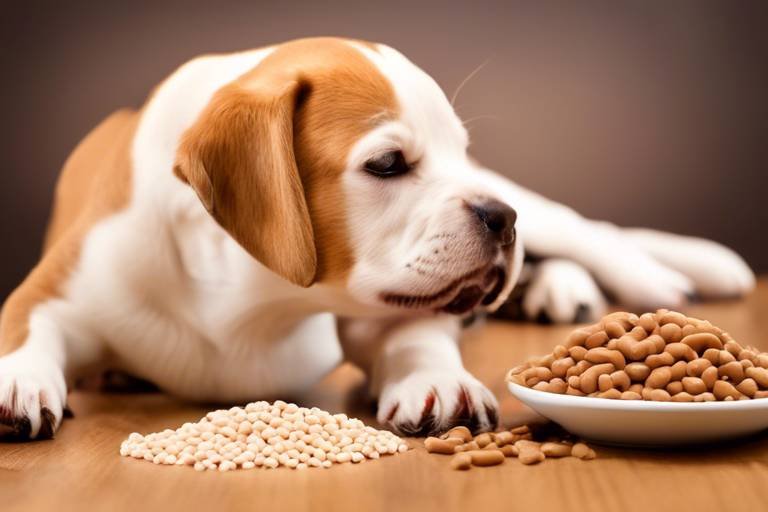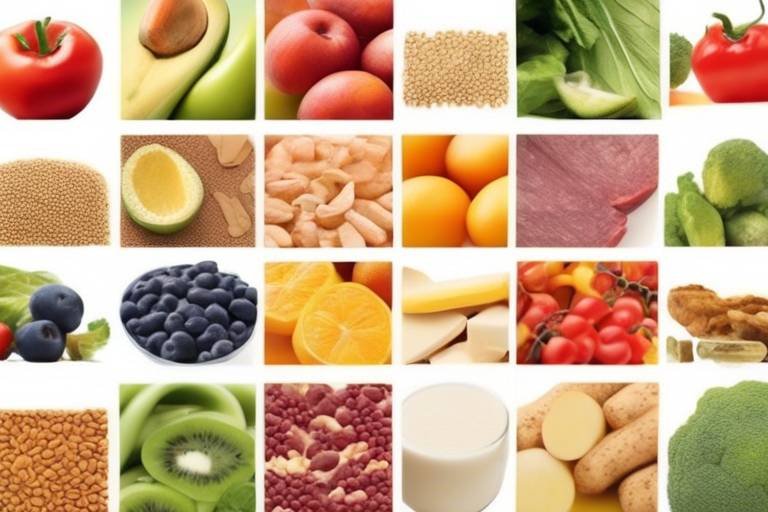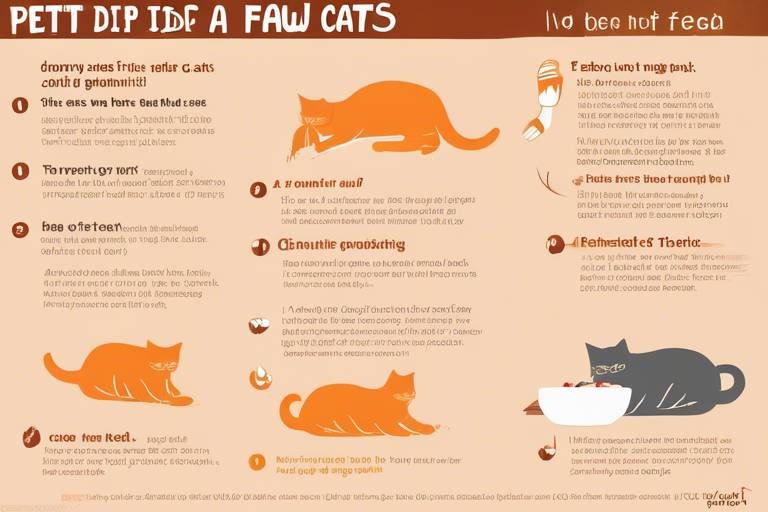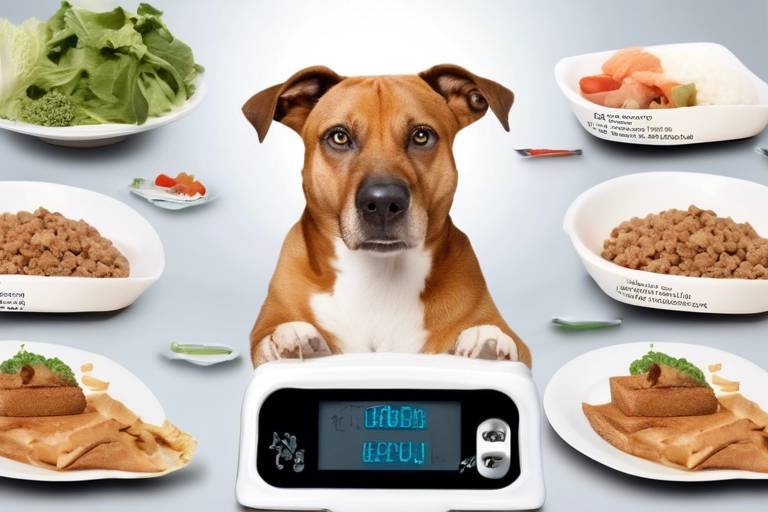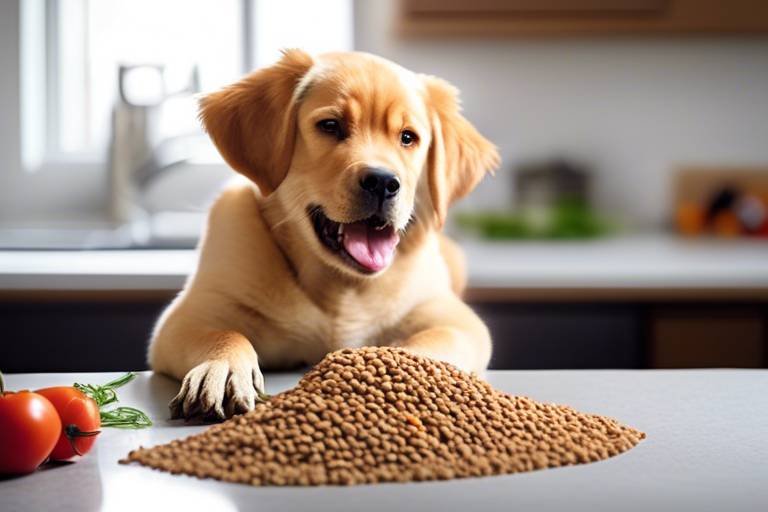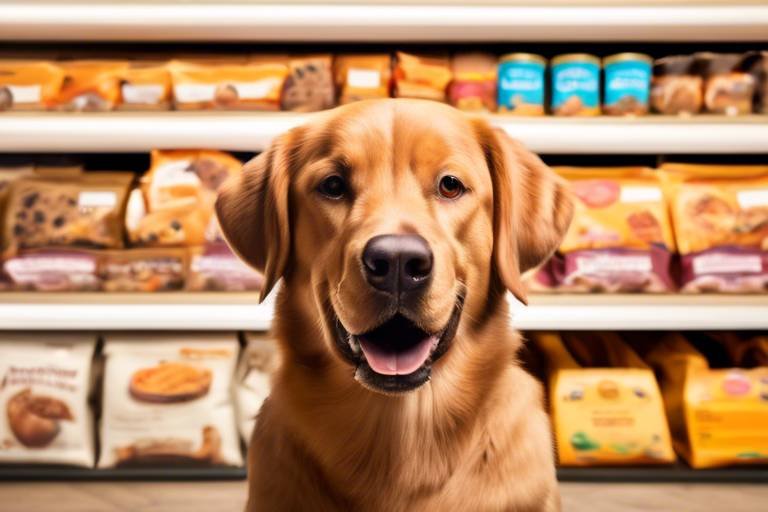The Benefits of Using Organic Ingredients in Pet Food
In a world where pet owners are increasingly aware of what goes into their furry friends' bowls, the conversation around pet food has shifted dramatically. Gone are the days when convenience and price ruled the decision-making process. Today, more people are considering the health and sustainability of their pets' diets. This article explores the numerous advantages of incorporating organic ingredients into pet food, emphasizing health, sustainability, and overall well-being for pets and their owners.
When it comes to nutrition, organic ingredients often stand out as the superior choice. Many studies suggest that organic produce contains higher levels of essential nutrients, vitamins, and minerals compared to their conventionally grown counterparts. For instance, organic meats are typically free from antibiotics and hormones, which can lead to better health outcomes for pets. By feeding your pet organic food, you are not just filling their stomach; you are fueling their bodies with the nutrients they need to thrive. Imagine your pet as a high-performance vehicle; would you fill it with low-grade fuel? Of course not! The same logic applies to your pet's diet.
Another compelling reason to opt for organic pet food is improved digestibility. Organic ingredients are often less processed and contain no artificial additives, making them easier for pets to digest. This means that your pet can absorb more nutrients from their food, leading to better overall health. Think of it this way: if your pet's digestive system is a sponge, organic food is the clean water it craves. On the other hand, conventional pet food can be like muddy water, filled with impurities that your pet's body struggles to process. When pets digest their food effectively, they experience less gastrointestinal discomfort, leading to happier and healthier lives.
For many pets, food allergies can be a significant issue, leading to discomfort and health problems. One of the major benefits of organic ingredients is that they can help minimize allergic reactions. Conventional pet foods often contain fillers and artificial ingredients that can trigger allergies in pets. By switching to organic options, pet owners can provide their pets with a diet that is less likely to cause these reactions. Organic foods are typically made from whole ingredients, which means fewer allergens to worry about.
Some common allergens found in conventional pet food include:
- Wheat
- Beef
- Dairy
- Chicken
- Soy
These ingredients can lead to a range of allergic reactions, from skin irritations to gastrointestinal distress. By choosing organic alternatives, you can help your pet avoid these troublesome allergens.
Recognizing the symptoms of food allergies in pets is crucial for their well-being. Some common signs include:
- Itchy skin or excessive scratching
- Gastrointestinal upset, such as vomiting or diarrhea
- Ear infections
- Red, inflamed skin
If you notice any of these symptoms, it may be time to consider a dietary change to organic pet food.
Let's face it: pets can be picky eaters! One of the often-overlooked benefits of organic ingredients is their ability to enhance the flavor and palatability of pet food. Organic ingredients are typically fresher and more flavorful, making them more appealing to pets. When pets enjoy their food, they are more likely to eat well, which is essential for their health. Imagine offering your pet a gourmet meal versus a bland, processed option; the difference is clear! Organic pet food can turn mealtime into a delightful experience for your furry friend.
Choosing organic ingredients not only benefits pets but also supports sustainable farming practices. Organic farming methods are designed to be environmentally friendly, reducing the use of harmful pesticides and chemicals that can harm the ecosystem. By opting for organic pet food, pet owners are making a conscious choice to protect the planet. This is particularly important in today's world, where environmental issues are more pressing than ever.
Organic farming practices help preserve biodiversity by promoting a healthier ecosystem. These methods encourage a variety of plants and animals to thrive, contributing to a balanced environment. In contrast, conventional farming often leads to monocultures, which can harm local wildlife and reduce biodiversity. When you choose organic pet food, you are not just feeding your pet; you are also supporting a healthier planet for all living beings.
Purchasing organic pet food often means supporting local farmers who practice sustainable agriculture. This not only boosts the local economy but also promotes community well-being. By buying organic, you're investing in the future of food production and ensuring that your pet's diet is made from high-quality ingredients. It's a win-win situation: your pet gets the best nutrition, and local farmers thrive.
Q: Is organic pet food more expensive than conventional pet food?
A: While organic pet food can be pricier, many pet owners find that the health benefits and quality justify the cost.
Q: Will my pet really notice a difference with organic food?
A: Many pet owners report improved energy levels, better digestion, and even shinier coats after switching to organic food.
Q: How can I transition my pet to organic food?
A: Gradually mix organic food with your pet's current food to help them adjust. Start with a small ratio and slowly increase the organic portion over time.
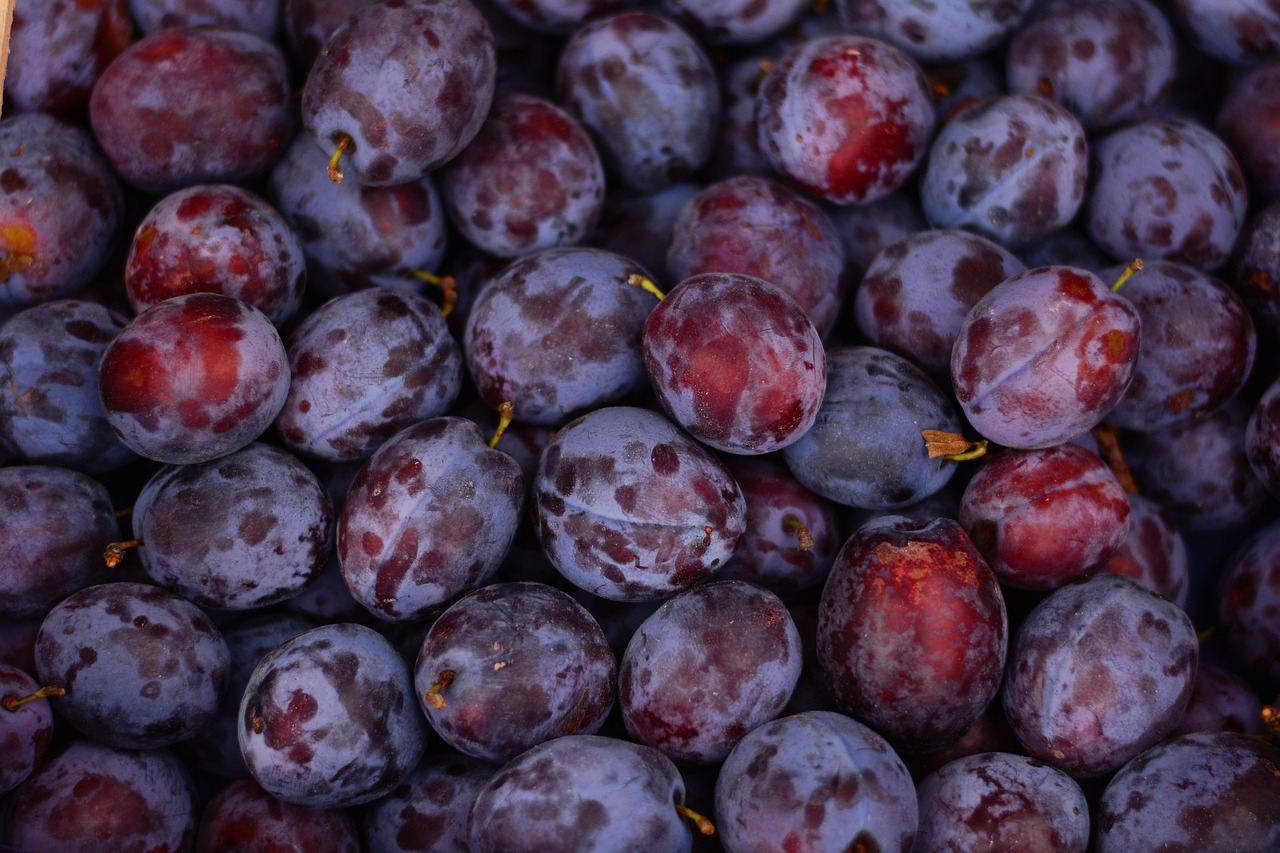
Improved Nutritional Value
This article explores the numerous advantages of incorporating organic ingredients into pet food, emphasizing health, sustainability, and overall well-being for pets and their owners.
When it comes to our furry friends, nutrition is key. Just like we want the best for our diets, our pets deserve nothing less. Organic ingredients in pet food often boast a higher concentration of essential nutrients compared to their conventional counterparts. Why is this important? Well, think of it this way: when you eat a meal packed with vitamins and minerals, you feel energized and vibrant, right? The same goes for pets! Organic ingredients can provide a more robust nutritional profile, which translates to better health and vitality for our beloved companions.
For example, organic meats are typically sourced from animals that are raised without antibiotics or growth hormones, meaning they are more nutrient-dense. Additionally, organic fruits and vegetables are grown without synthetic pesticides and fertilizers, allowing them to retain more of their natural goodness. This means that when you choose organic pet food, you’re not just feeding your pet; you’re fueling their body with high-quality nutrients that can lead to:
- Stronger Immune Systems: Pets that consume organic food often have better immunity, reducing the chances of illness.
- Healthier Skin and Coat: The right nutrients promote a shiny coat and healthy skin, making your pet look and feel great.
- Enhanced Energy Levels: With better nutrition comes more energy, allowing pets to be playful and active.
Furthermore, the lack of artificial additives and preservatives in organic pet food means that pets can absorb nutrients more effectively. These additives can sometimes interfere with nutrient absorption, so by eliminating them, organic food allows pets to get the most out of their meals. When you consider the long-term health benefits, investing in organic pet food can lead to fewer vet visits and a happier, healthier pet.
In conclusion, the improved nutritional value of organic pet food is not just a trend; it's a vital aspect of pet care that can lead to significant health benefits. By choosing organic, you’re not only making a choice for your pet's well-being but also investing in their future. Remember, a healthy pet is a happy pet!
Organic pet foods typically feature ingredients that are easier for pets to digest. This subheading examines how digestibility impacts pets' health and their ability to absorb nutrients effectively.
Using organic ingredients can help minimize allergic reactions in pets. This section highlights common allergens in conventional pet foods and how organic options can alleviate these issues.
This subheading identifies specific ingredients that often trigger allergies in pets, providing insights into why organic alternatives may be beneficial.
Recognizing the symptoms of food allergies in pets is crucial. This section outlines common signs pet owners should look for when considering dietary changes.
Organic ingredients can improve the taste of pet food, making it more appealing to pets. This part discusses how flavor affects pet food choices and consumption.
Choosing organic ingredients not only benefits pets but also supports sustainable farming practices. This subheading explores the environmental advantages of organic pet food production.
Organic farming methods help preserve biodiversity. This section explains how organic practices contribute to a healthier ecosystem, benefiting both pets and the planet.
Purchasing organic pet food often means supporting local farmers. This subheading discusses the economic benefits of choosing organic ingredients for both pets and communities.
Q: What are the main benefits of organic pet food?
A: Organic pet food provides improved nutritional value, better digestibility, reduced allergens, enhanced flavor, and supports environmental sustainability.
Q: How can I tell if my pet has a food allergy?
A: Common signs of food allergies include itching, digestive issues, and changes in behavior. If you suspect your pet has allergies, consult your veterinarian.
Q: Is organic pet food more expensive than conventional pet food?
A: Yes, organic pet food can be more expensive, but the health benefits and support for sustainable farming practices often outweigh the cost.

Better Digestibility
When it comes to our furry friends, their digestive health is paramount. Just like us, pets need food that they can easily break down and absorb. This is where organic ingredients come into play. Unlike conventional pet foods, which often contain fillers and artificial additives, organic pet foods are made with high-quality, natural ingredients that are easier for pets to digest. Imagine trying to digest a heavy, greasy meal versus a light, wholesome salad—your pet feels the same way! A diet rich in organic ingredients can lead to better nutrient absorption, which in turn contributes to your pet's overall health and vitality.
One of the standout features of organic pet food is that it typically contains fewer artificial preservatives and additives. These substances can wreak havoc on a pet's digestive system, leading to discomfort and a host of health issues. By choosing organic, you're opting for a cleaner, more straightforward diet that your pet's body recognizes as food rather than a chemistry experiment. This is particularly important for pets with sensitive stomachs or those who have experienced digestive issues in the past. When pets consume organic food, they often experience a noticeable reduction in gastrointestinal problems, such as gas, bloating, or irregular bowel movements.
Moreover, organic ingredients often come from non-GMO sources, meaning they haven’t been genetically modified. This is significant because genetic modifications can sometimes lead to the creation of proteins that are difficult for pets to digest. By feeding your pet organic food, you’re not only providing them with a diet that is easier on their stomach but also one that is more aligned with their natural dietary needs.
To illustrate the benefits of better digestibility, let's take a look at a comparison table:
| Type of Ingredient | Digestibility Rating | Common Issues |
|---|---|---|
| Organic Ingredients | High | Less gas, fewer allergies |
| Conventional Ingredients | Medium to Low | Gas, bloating, allergies |
In conclusion, opting for organic pet food is a choice that leads to better digestibility for your pets. It’s about giving them the best chance at a healthy, happy life. Transitioning to organic food may take some time, but the benefits—like improved digestion, enhanced nutrient absorption, and a happier, healthier pet—are well worth the effort. So, the next time you're at the pet store, consider what you’re putting in that bag. Your pet will thank you!
1. What are the signs that my pet has a digestive issue?
Common signs include vomiting, diarrhea, gas, and a lack of appetite. If you notice these symptoms, it may be time to reevaluate their diet.
2. How can I transition my pet to organic food?
Start by mixing a small amount of organic food with their current diet, gradually increasing the proportion of organic food over a week or two.
3. Are organic pet foods more expensive?
While organic pet foods can be pricier, the health benefits and potential savings on vet bills from fewer health issues can make it a worthwhile investment.
4. Can all pets eat organic food?
Most pets can benefit from organic food, but always consult with your veterinarian, especially if your pet has specific dietary needs or health issues.
Reduced Allergens
When it comes to our furry companions, food allergies can be a significant concern. Many pet owners are surprised to learn that the very food they provide for their pets could be the culprit behind various health issues. This is where organic ingredients come into play. By opting for organic pet food, you're not just making a choice for better nutrition; you're also making a choice that can lead to fewer allergens in your pet’s diet. Organic ingredients often avoid the use of synthetic additives, artificial flavors, and preservatives that can trigger allergic reactions.
Common allergens found in conventional pet foods include ingredients like corn, soy, and certain types of meat. These ingredients can be highly processed and may contain residues of pesticides or chemicals, which can exacerbate allergic reactions in sensitive pets. In contrast, organic pet foods are made with whole, natural ingredients that are less likely to cause issues. For example, organic chicken or beef is raised without the use of antibiotics or hormones, making it a safer option for pets prone to allergies.
Moreover, the production of organic ingredients typically involves strict regulations that limit the use of harmful substances. This means that when you choose organic pet food, you are likely providing your pet with a diet that is not only healthier but also less likely to trigger an allergic reaction. In fact, many pet owners report a noticeable improvement in their pets' health after switching to organic diets, including reduced itching, better skin condition, and overall vitality.
Here’s a quick overview of some common allergens found in conventional pet foods compared to organic options:
| Common Allergens | Conventional Pet Food | Organic Pet Food |
|---|---|---|
| Corn | Often used as a filler | Rarely used; alternatives like brown rice are preferred |
| Wheat | Commonly included | Usually avoided |
| Beef | May contain hormones and antibiotics | Raised without harmful additives |
| Chicken | Often processed with additives | Free from harmful substances |
In addition to reducing allergens, organic pet food can also help you identify specific ingredients that your pet might be sensitive to. When you feed your pet a diet composed of fewer, high-quality ingredients, it becomes easier to monitor their reactions and make necessary adjustments. This can be especially beneficial for pets with known sensitivities, as it allows for a more tailored approach to their diet.
Ultimately, choosing organic ingredients can lead to significant improvements in your pet's health and comfort. By minimizing allergens, you're not just feeding your pet; you're enhancing their quality of life. So, if you've noticed your pet suffering from allergies, consider making the switch to organic. It might just be the change they need to thrive!
Common Allergens in Pet Food
When it comes to pet food, not all ingredients are created equal. Some can be downright troublesome, leading to a range of allergic reactions in our furry friends. It's essential to be aware of these common allergens, especially if you notice your pet exhibiting unusual behaviors or symptoms. Grains, for instance, are a frequent culprit. Many commercial pet foods contain corn, wheat, and soy, which can trigger allergies in sensitive pets. These grains are often used as fillers, providing little nutritional value while increasing the risk of allergic reactions.
Another common allergen is animal proteins. While protein is crucial for your pet's health, certain proteins, like beef or chicken, can cause allergies in some pets. This is particularly true for those who have been fed the same protein source for an extended period. Over time, their immune system may start to react negatively to these proteins, leading to skin irritations, gastrointestinal issues, or other allergic symptoms.
Additionally, dairy products can also be problematic. Many pets, especially cats and dogs, are lactose intolerant, which means they struggle to digest dairy. This can lead to upset stomachs and other digestive issues. Artificial additives, such as colors, flavors, and preservatives, are yet another source of concern. These chemicals can irritate the digestive system and may even lead to allergic reactions in some pets.
To help you better understand the potential allergens in pet food, here's a quick overview:
| Common Allergens | Symptoms |
|---|---|
| Grains (Corn, Wheat, Soy) | Itchy skin, ear infections, gastrointestinal upset |
| Animal Proteins (Beef, Chicken, Lamb) | Skin irritations, vomiting, diarrhea |
| Dairy Products | Diarrhea, vomiting, gas |
| Artificial Additives | Digestive issues, skin reactions |
By being aware of these common allergens, you can make more informed choices when selecting pet food. Opting for organic ingredients often means avoiding these problematic fillers and additives, leading to a healthier, happier pet. Remember, a little bit of knowledge can go a long way in ensuring your furry companion thrives!
Signs of Food Allergies
Recognizing the in your pet is essential for ensuring their health and happiness. Just like us, pets can experience a range of symptoms when they react to certain foods. These reactions can manifest in various ways, and being aware of them can help you make informed decisions about your pet's diet. Imagine your furry friend scratching incessantly or having an upset stomach; these could be telltale signs that something in their food isn't sitting well with them.
One of the most common indications of food allergies is skin irritation. If you notice your pet frequently scratching, licking, or biting at their skin, it may be time to investigate their diet. Allergies often lead to conditions like hot spots or rashes, which can be uncomfortable for your pet. Additionally, you might see redness or inflammation in areas like the ears or paws, signaling that an allergen is at play.
Another significant sign is digestive upset. If your pet is experiencing frequent vomiting or diarrhea, it could be their body's way of saying, "Hey, this food isn't working for me!" Keep an eye out for changes in their stool consistency or the frequency of their bathroom trips. A sudden change in your pet's digestive patterns can be a major red flag.
Some pets also exhibit ear infections or chronic ear issues as a reaction to food allergies. If your dog or cat is shaking their head excessively or scratching at their ears, it might not just be a case of dirty ears; it could be a symptom of an allergic reaction. A visit to the vet can help determine if food is the culprit.
In addition to these physical signs, behavioral changes can also indicate food allergies. If your usually energetic pet seems lethargic or irritable, it could be due to discomfort caused by their food. Animals can't tell us what's wrong, but changes in their behavior can be a significant clue that something needs to change.
It's also worth noting that some pets may develop respiratory issues as a result of food allergies, though this is less common. Symptoms like coughing, sneezing, or wheezing should prompt an immediate consultation with your veterinarian, as they can indicate a severe reaction.
In summary, the signs of food allergies in pets can range from skin irritations and digestive issues to behavioral changes and respiratory problems. If you suspect that your pet is suffering from food allergies, it's crucial to consult with a veterinarian who can help identify the specific allergens and recommend dietary changes. Remember, your pet's health and happiness depend on what goes into their bowl!
- What are the most common food allergens for pets? Common allergens include beef, dairy, chicken, soy, and wheat.
- How can I determine if my pet has a food allergy? Consult your veterinarian and consider an elimination diet to identify potential allergens.
- Are organic ingredients less likely to cause allergies? While organic ingredients can reduce exposure to certain allergens, it's essential to monitor your pet's reactions to any new food.
- Can food allergies develop over time? Yes, pets can develop allergies at any age, even to foods they have previously consumed without issues.
Enhanced Flavor and Palatability
When it comes to pet food, flavor and palatability are not just buzzwords; they are essential factors that can significantly influence your pet's eating habits. Imagine offering your furry friend a meal that they can't resist—one that makes their tail wag with excitement! This is where organic ingredients shine, providing not only a nutritional boost but also an irresistible taste. Unlike conventional pet foods that often rely on artificial flavors and fillers, organic options are packed with natural ingredients that enhance the overall flavor profile.
Organic ingredients, such as fresh meats, vegetables, and grains, are often sourced from farms that prioritize quality over quantity. This means that the ingredients are not only fresher but also richer in flavor. Think about the difference between a home-cooked meal using fresh vegetables from your garden versus a frozen dinner filled with preservatives. Pets, much like us, can taste the difference! When they eat food made from organic ingredients, they are more likely to enjoy their meals, which can lead to better overall health and well-being.
Additionally, many pet owners have noticed that their pets show a greater enthusiasm for organic foods compared to traditional options. This can be attributed to the absence of artificial additives that can dull flavor. When pets are excited about their food, they are more likely to consume the right amount of nutrients. It's a win-win situation! Not only are you providing your pet with a tasty meal, but you're also ensuring they receive the nutrition they need to thrive.
Furthermore, the enhanced flavor of organic pet foods can lead to less food waste. Pets are less likely to leave their food uneaten when it is delicious and appealing. This not only saves you money but also contributes to a more sustainable lifestyle. By choosing organic, you're not just making a choice for your pet; you're making a choice for the planet.
In summary, the of organic pet food can transform mealtime into a delightful experience for your pet. By opting for organic ingredients, you are ensuring that your furry friend enjoys their meals while also benefiting from the nutritional value these foods provide. So why settle for less when you can give your pet the best? After all, a happy pet leads to a happy owner!
- Are organic pet foods more expensive than conventional ones? Yes, organic pet foods can be pricier due to higher production costs, but many pet owners find the health benefits and superior quality worth the investment.
- Can all pets eat organic food? Most pets can benefit from organic food, but it's always best to consult your veterinarian, especially if your pet has specific dietary needs.
- How can I tell if my pet prefers organic food? Look for signs of excitement during mealtime, such as wagging tails or eager eating. You may also notice your pet finishing their food more quickly.
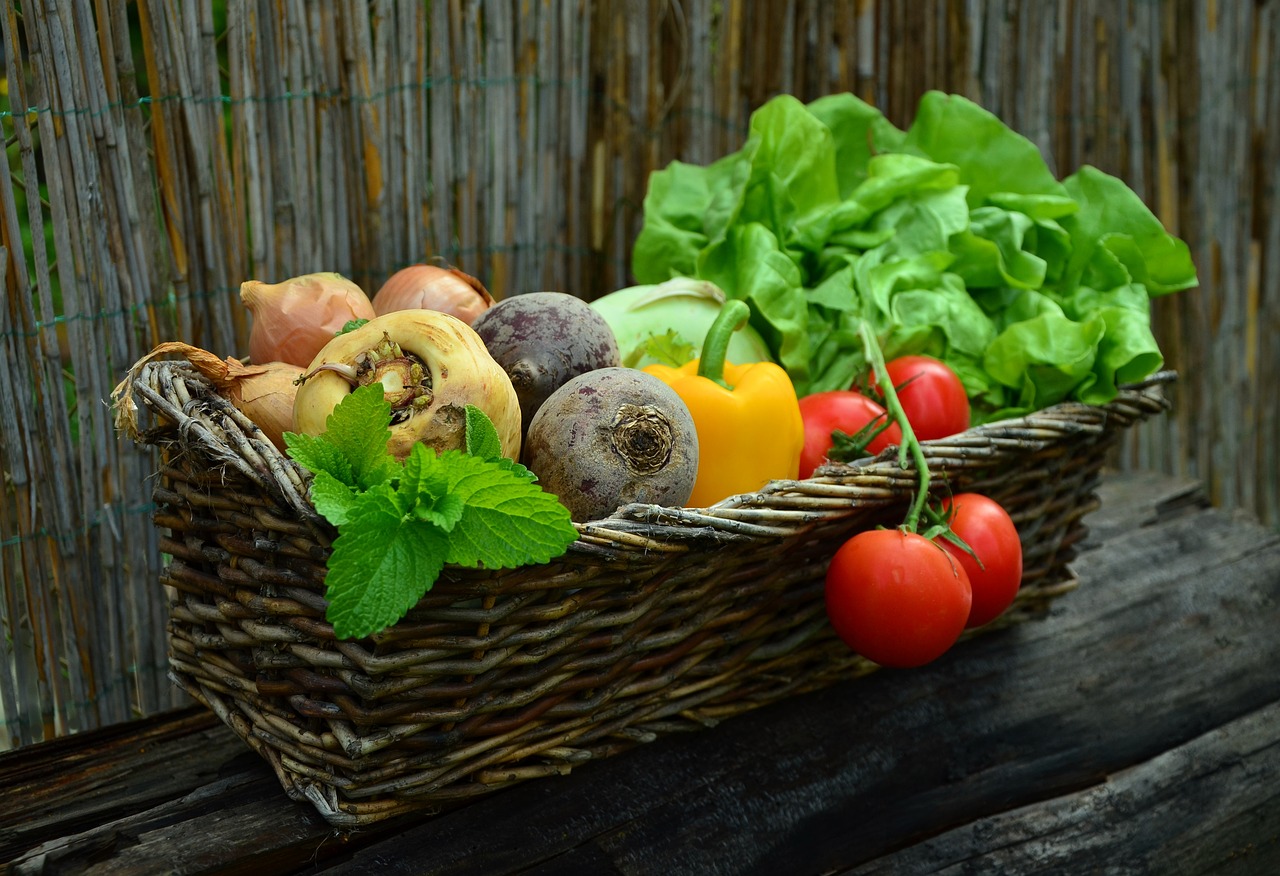
Environmental Sustainability
This article explores the numerous advantages of incorporating organic ingredients into pet food, emphasizing health, sustainability, and overall well-being for pets and their owners.
Organic ingredients often contain higher levels of essential nutrients, contributing to better overall health for pets. This section discusses how these ingredients enhance the nutritional profile of pet food.
Organic pet foods typically feature ingredients that are easier for pets to digest. This subheading examines how digestibility impacts pets' health and their ability to absorb nutrients effectively.
Using organic ingredients can help minimize allergic reactions in pets. This section highlights common allergens in conventional pet foods and how organic options can alleviate these issues.
This subheading identifies specific ingredients that often trigger allergies in pets, providing insights into why organic alternatives may be beneficial.
Recognizing the symptoms of food allergies in pets is crucial. This section outlines common signs pet owners should look for when considering dietary changes.
Organic ingredients can improve the taste of pet food, making it more appealing to pets. This part discusses how flavor affects pet food choices and consumption.
Choosing organic ingredients not only benefits pets but also supports sustainable farming practices. When you opt for organic pet food, you're making a conscious choice that can lead to a healthier planet. Organic farming emphasizes the use of natural processes and materials, which helps reduce pollution and conserves water. By avoiding synthetic pesticides and fertilizers, organic farming protects the environment and promotes biodiversity.
One of the most significant advantages of organic pet food is its impact on biodiversity. Conventional farming often leads to monocultures, which can harm local ecosystems. In contrast, organic practices encourage crop rotation and diverse plantings, fostering a richer habitat for wildlife. This biodiversity is not just good for the environment; it also contributes to healthier soil, which in turn supports the growth of nutritious crops. The cycle of life thrives when we choose organic, creating a win-win situation for pets and the planet.
Moreover, when you purchase organic pet food, you are often supporting local farmers. This means that your choice has economic implications as well. By investing in organic products, you're helping to sustain local economies, which can lead to job creation and better community health overall. Supporting local farmers not only keeps money within the community but also reduces the carbon footprint associated with transporting food over long distances.
| Benefit | Description |
|---|---|
| Reduced Pollution | Organic farming minimizes the use of harmful chemicals, leading to cleaner air and water. |
| Biodiversity | Encourages a variety of crops that support local wildlife and ecosystems. |
| Support for Local Economies | Purchasing organic often means buying from local farmers, which strengthens community ties. |
In summary, opting for organic ingredients in pet food is not just a personal choice; it’s a choice that resonates with broader environmental values. By choosing organic, you’re not only ensuring a healthier diet for your furry friend but also playing a part in sustaining the planet for future generations. Isn’t it amazing how a simple choice can have such a profound impact?
- What are the main benefits of organic pet food? Organic pet food offers improved nutrition, better digestibility, and fewer allergens, all while promoting environmental sustainability.
- How can I tell if a pet food is truly organic? Look for certification labels from recognized organic certifying bodies, which ensure that the ingredients meet strict organic standards.
- Will my pet like organic food? Many pets find organic food more palatable due to the absence of artificial flavors and preservatives, leading to better acceptance.
- Is organic pet food more expensive? While organic pet food can be pricier, the health benefits and environmental impact often justify the cost.
Impact on Biodiversity
When we think about pet food, our minds often drift to the health of our furry friends. However, the impact of our choices extends far beyond their bowls. By opting for organic ingredients in pet food, we're not just making a decision for our pets; we're also contributing to the health of our planet. Organic farming practices are designed to promote a balanced ecosystem, which is essential for maintaining biodiversity. But what does biodiversity mean in this context? It refers to the variety of life on Earth, including the different species of plants, animals, and microorganisms that all play a role in our ecosystem.
Organic farming methods, unlike conventional agriculture, avoid the use of harmful pesticides and synthetic fertilizers. These chemicals can be detrimental to non-target species, leading to a decline in populations of beneficial insects, birds, and other wildlife. For instance, when we choose organic pet food, we're supporting practices that encourage the growth of diverse plant species, which in turn provides habitats for a variety of organisms. This interconnectedness is crucial; a rich biodiversity contributes to a resilient ecosystem that can better withstand environmental stresses such as climate change.
Furthermore, organic farms often utilize crop rotation and polyculture, which not only enrich the soil but also create a more diverse habitat for wildlife. The use of cover crops and natural pest control methods helps maintain a balanced ecosystem, allowing beneficial insects to thrive while keeping pests in check. This natural approach is like creating a symphony where every instrument has its role, working together harmoniously rather than drowning each other out with chemical noise.
Additionally, organic farming practices tend to be more water-efficient and promote soil health, which are vital components for sustaining biodiversity. Healthy soils support a vast array of microorganisms that are essential for nutrient cycling and plant growth. When we choose organic pet food, we are not just feeding our pets; we are making a conscious choice to support a system that enhances biodiversity and promotes a healthier planet.
To illustrate the impact of organic farming on biodiversity, consider the following table showcasing the differences between organic and conventional farming practices:
| Aspect | Organic Farming | Conventional Farming |
|---|---|---|
| Pesticide Use | Natural pest control | Synthetic pesticides |
| Soil Health | Promotes biodiversity in soil | Depletes soil nutrients |
| Water Usage | More efficient | Often wasteful |
| Crop Diversity | Encourages diverse crops | Monoculture practices |
In conclusion, the choice to feed our pets organic ingredients is a step towards fostering biodiversity. It's about creating a ripple effect that benefits not only our pets but also the environment they live in. When we make informed choices about pet food, we contribute to a sustainable future where both our pets and the planet can thrive. So, the next time you're shopping for pet food, remember: you're not just choosing what goes into your pet's bowl; you're also supporting a healthier ecosystem for generations to come.
- What are the main benefits of organic pet food? Organic pet food offers improved nutritional value, better digestibility, and reduced allergens, which can enhance your pet's overall health.
- How does organic farming impact the environment? Organic farming promotes biodiversity, conserves water, and improves soil health, making it a more sustainable choice compared to conventional farming.
- Are organic ingredients safer for pets? Yes, organic ingredients are generally free from synthetic pesticides and chemicals, reducing the risk of allergic reactions and other health issues.
- How can I identify organic pet food? Look for labels that indicate the product is certified organic, which ensures it meets specific standards for organic farming and ingredient sourcing.
Supporting Local Farmers
When you choose organic pet food, you’re not just making a choice for your furry friend; you’re also making a significant impact on your local community. Supporting local farmers who produce organic ingredients helps sustain the agricultural economy in your area. Imagine walking into a farmer's market and seeing the vibrant colors of fresh, organic produce that not only nourishes your pets but also contributes to the livelihoods of those who grow it. By purchasing organic pet food, you are essentially voting with your dollars—favoring small-scale, sustainable farming practices over mass-produced, industrial agriculture.
Local farmers often use methods that are more environmentally friendly, which means that your choice of organic pet food can lead to healthier soil, cleaner water, and a reduction in harmful pesticides. This creates a positive ripple effect throughout the ecosystem. Additionally, when you buy from local sources, you’re reducing the carbon footprint associated with transporting food long distances. It’s like having a direct line to the source of your pet’s nutrition, and knowing that your choice supports those who are dedicated to sustainable practices.
Moreover, supporting local farmers fosters a sense of community. When you invest in your local economy, you’re helping to create jobs and maintain the agricultural heritage of your area. Many local farmers are passionate about their work and often engage in practices that prioritize animal welfare and sustainable farming. This means that the ingredients in your pet’s food are not only organic but are also sourced from farms that care about their animals and the environment. It’s a win-win situation!
Here’s a quick overview of the benefits of supporting local farmers through organic pet food:
- Economic Growth: Keeps money within the community, boosting local businesses.
- Environmental Benefits: Reduces carbon footprint and promotes sustainable farming.
- Quality Assurance: Often leads to fresher, higher-quality ingredients for your pets.
- Animal Welfare: Many local farms prioritize humane treatment of animals.
In conclusion, when you opt for organic pet food, you are not only prioritizing the health of your pets but also making a conscious decision to support local farmers and sustainable agriculture. It's a choice that resonates beyond the bowl, enriching your community and contributing to a healthier planet for all.
Q: What are the main benefits of choosing organic pet food?
A: Organic pet food typically offers improved nutritional value, better digestibility, and reduced allergens, while also supporting sustainable farming practices.
Q: How can I find local organic pet food options?
A: Check local farmers' markets, health food stores, or specialty pet shops that focus on organic products. You can also research online for local brands.
Q: Are there any specific certifications I should look for in organic pet food?
A: Look for certifications from organizations like the USDA Organic label, which ensures that the food meets specific organic farming standards.
Q: Can I make homemade organic pet food?
A: Yes, you can prepare homemade organic meals for your pets. Just ensure to include all necessary nutrients and consult with a veterinarian for guidance.
Frequently Asked Questions
- What are the main benefits of using organic ingredients in pet food?
Using organic ingredients in pet food can lead to improved nutritional value, better digestibility, and reduced allergens. These benefits contribute to your pet's overall health and well-being, ensuring they get the nutrients they need without unnecessary additives.
- How do organic ingredients enhance the nutritional profile of pet food?
Organic ingredients are often richer in essential nutrients compared to their conventional counterparts. This means your pet may receive more vitamins, minerals, and antioxidants, which can help boost their immune system and support their overall health.
- Can organic pet food help with my pet's allergies?
Absolutely! Organic pet food typically contains fewer common allergens, such as artificial additives and certain grains. This can significantly reduce allergic reactions in pets, making mealtime more enjoyable and less stressful for both pets and their owners.
- What are some common allergens found in conventional pet food?
Common allergens in pet food include ingredients like corn, soy, wheat, and artificial preservatives. These can trigger reactions in sensitive pets. Switching to organic options can help eliminate these allergens and improve your pet's health.
- How can I recognize signs of food allergies in my pet?
Watch for symptoms such as itching, digestive upset, or unusual behavior after eating. If you notice these signs, it may be time to consider an organic diet that avoids common allergens and promotes better health.
- Does organic pet food taste better for pets?
Yes! Many pet owners report that their pets prefer the taste of organic food. The absence of artificial flavors and the use of high-quality, fresh ingredients can make organic pet food more palatable, encouraging pets to enjoy their meals.
- How does choosing organic pet food support the environment?
Organic farming practices help preserve biodiversity and reduce chemical runoff, which benefits the ecosystem. By choosing organic pet food, you are also supporting sustainable farming practices that are better for the planet.
- What is the impact of organic farming on local communities?
Purchasing organic pet food often means supporting local farmers who engage in sustainable practices. This not only boosts the local economy but also fosters a sense of community and connection between consumers and producers.

